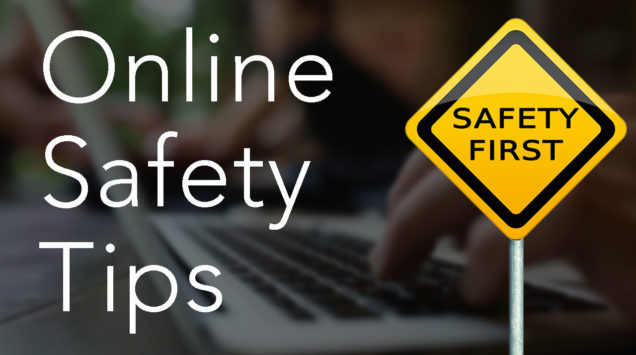
The internet has a lot of positive ways for kids and teens to learn. And when it comes to parenting, there isn’t a book to show us how to navigate every step. With school shootings on the rise, vaping flavors that mimic candy, and online predators, privacy concerns are lurking. Xbox and PlayStation games online make it easy for not only kids to communicate with each other, but adult pedophiles as well. For these reasons, it is extremely important to take proper online safety precautions!
Ten tips to help keep your kids safe online:
1. Look at your kids’ cell phone. Be an informed parent and make sure you can get into the device (fingerprint, password) and do random checks. You also need to know that there are spoofing apps that can hide other apps so make sure you know what you should be looking for.
2. NEVER reveal personal information and NEVER give away passwords or share them with friends.
3. Always log off your computer. Otherwise you are taking the risk that a hacker can access your information.
4. Talk and educate your kid on how to stay safe on their devices. Let them know what to do if they are approached by someone online or if they see something that is inappropriate.
5. Follow your kids online. Know their social media accounts (Snapchat, Instagram, YouTube, etc.)
6. At night, take your kids devices out of their rooms or turn off the wifi. Many issues with online safety occur while parents think their kids are sleeping.
7. Remind your kids that ANYTHING that is placed online can’t be taken back. Even when they think they have removed something or deleted it, it still exists.
8. Research before you buy! Look at the security settings that are available on any device you plan to buy before you make the purchase.
9. Establish rules and guidelines. What websites and apps can your kid use? Talk about the consequences if a rule is broken in advance, so that your kid knows the expectations.
10. Educate yourself! There are many resources out there, but here are a few recommended sites: netsmartz.org; revisor.mn.gov; cybertipline.com
To help protect the online privacy of kids, the FTC enforces the Children’s Online Privacy Protection Act (COPPA), which requires websites and online services to get consent from parents before they can collect personal information from kids under age 13. It might seem like a lot of work, but if you educate yourself on the dangers, and implement the safety tips noted above, you are taking critical steps to ensuring the safety of your kids digital footprint.
